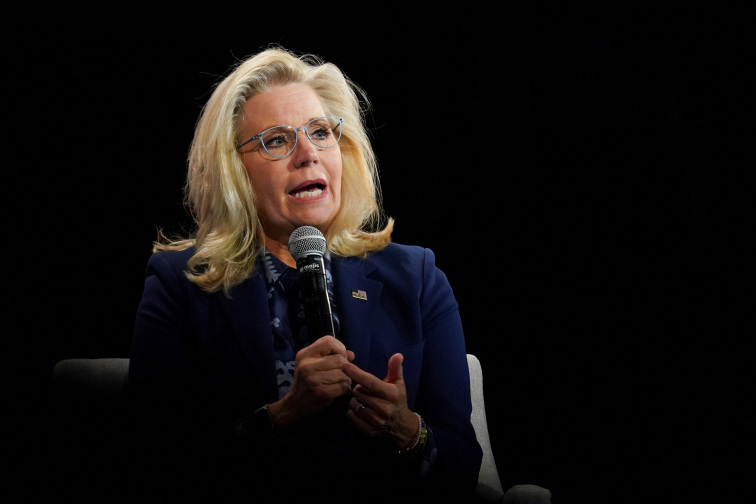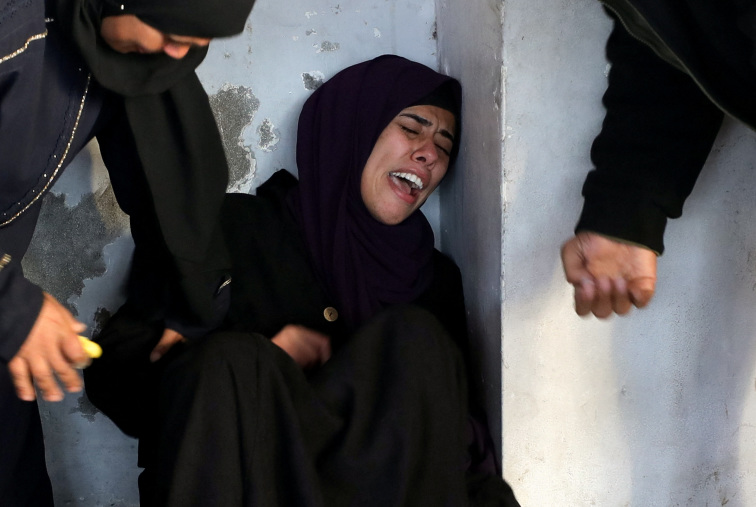Image: A Chinese military canine and demolition unit conducting a security sweep at Tiananmen Square. (Photo by Kevin Frayer/Getty Images)
People News - On December 23, reports from the Chinese military’s official outlets, including PLA Daily and military.cn, announced the promotion of Chen Hui to the rank of general, alongside his appointment as the Army's Political Commissar. The promotion ceremony took place at the Bayi Building in Beijing, attended by Xi Jinping and several Central Military Commission (CMC) members, including Zhang Youxia, He Weidong, Liu Zhenli, and Zhang Shengmin. This marks Xi Jinping’s first general promotion since July’s Third Plenary Session, during which rumors surfaced of Xi suffering a stroke and his close military ally, CMC Political Work Department Director Miao Hua, being investigated.
Since becoming the CCP leader in 2012, Xi Jinping has promoted several generals. Over the past five years: In 2020, Xi promoted five generals, including Wang Chunning, commander of the paramilitary People’s Armed Police, who was later reportedly investigated. In 2021, nine were promoted, including Central Theater Command Commander Lin Xiangyang and Defense Minister Dong Jun. In 2022, eight were promoted, among them Rocket Force Commander Li Yuchao, who was later removed, and Qin Shubao, Army Political Commissar, who is reportedly under investigation. In 2023, seven were promoted. In 2024, only four have been promoted, including Wang Renhua, secretary of the CMC’s Politics and Law Commission, and Xiao Tianliang, president of the National Defense University, in March, along with He Hongjun, CMC Political Work Department Executive Deputy Director, in July, and now Chen Hui.
The reduced number of promotions this year and the longer intervals between announcements suggest unusual developments, corroborating speculation of significant changes within the military that have weakened Xi’s authority.
Chen Hui’s appointment as Army Political Commissar confirms prior reports that his predecessor, General Qin Shubao, had been detained. Qin, a former close ally of Xi and a Political Department Director of the 31st Army in Fujian, was reportedly linked to Miao Hua. Qin’s downfall and Miao Hua’s investigation are believed to have dealt a significant blow to Xi, highlighting a loss of military control.
Who Is Chen Hui? Born in 1963 in Hebei Province, Chen Hui’s career has primarily been within the Air Force and aerospace units: Political Commissar of the 43rd Airborne Division. In March 2010, appointed Deputy Political Commissar of the Air Force Command Academy. In January 2016, became Secretary of the Discipline Inspection Commission for the Southern Theater Command Air Force. In September 2020, took on the role of Secretary of the Air Force Discipline Inspection Commission and Director of its Supervision Commission. In August 2021, transferred to the Strategic Support Force as Political Commissar of its Aerospace Systems Department. In April 2024, became the inaugural Political Commissar of the Military Aerospace Forces.
Chen’s military experience is rooted in the Air Force and aerospace units, areas where former CMC Vice Chairman Xu Qiliang held significant influence. Xu’s network within the Air Force is thought to surpass Xi’s, suggesting Chen’s promotion may have been influenced by Xu or another influential Air Force figure rather than Xi himself.
If Xi Jinping was sidelined due to health issues in July, with CCP elders taking over decision-making, Xu Qiliang—loyal to former CCP leader Hu Jintao and a prominent figure in the Air Force—may have collaborated with Zhang Youxia to consolidate control over the military.
Xu Qiliang, a distinguished Air Force pilot, served as Air Force Chief of Staff in 1994 and as Deputy Commander of the Shenyang Military Region and Commander of its Air Force in 1999. He attended further studies at the National Defense University in 2001. In 2004, Xu became Deputy Chief of the General Staff and, in September 2007, Commander of the Air Force. Xu later became a member of the CMC and was promoted to Vice Chairman of the CMC and a Politburo member in 2012. After serving two terms as CMC Vice Chairman, Xu retired at the CCP’s 20th National Congress in October 2022 at the age of 72.
At the beginning of this year, rumors surfaced that Xi Jinping intended to take action against Xu Qiliang. During Xi’s first and second terms, his high-profile anti-corruption campaign within the military targeted Jiang faction figures like Xu Caihou and Guo Boxiong. Xu Qiliang, aligned with Hu Jintao, publicly supported Xi during this period and even became a key ally in weakening the Jiang faction's influence. However, Xi’s “leftward shift” after the 19th Party Congress and his measures to secure a third term at the 20th Party Congress caused dissatisfaction among some of his former supporters within the Party and the military. Before the 20th Party Congress, internal struggles within the CCP and the military intensified. At one point, Xu Qiliang stopped openly praising Xi Jinping in his statements.
Before the Congress, the PLA’s official website and the Ministry of Defense published an article titled "Persisting in Advancing Fundamental Changes in Military Governance Methods," which explicitly argued against "rule by man" and subtly criticized Xi’s policy of the CMC Chairman Responsibility System. Such statements would have been impossible without Xu Qiliang’s tacit approval as the CMC’s first vice chairman.
Ultimately, internal CCP negotiations resulted in Xi Jinping retaining his position. However, Xi reportedly overturned the Politburo Standing Committee list agreed upon internally, and at the Congress, he publicly removed Hu Jintao from the venue when Hu seemed to notice discrepancies, using force to launch his third term. Despite this, Xi never fully secured control over the military.
After Xi’s re-election, PLA publications repeatedly emphasized that "implementing the CMC Chairman Responsibility System is a critical and serious political task." New educational plans were issued across the military to reinforce this system. Xi also purged several military officers, including commanders in the Rocket Force, and Defense Minister Li Shangfu mysteriously disappeared. These actions stemmed from Xi’s fear of potential plots against him within the military. Thus, Xi targeting Xu Qiliang—who had previously been loyal to Hu Jintao and maintained significant influence within the military—was unsurprising.
However, before Xi could act, a sudden stroke rendered him powerless in the military, allowing Xu Qiliang to weather the potential threat.
Now, the first general promoted after Xi’s stroke is not one of his trusted confidants. Isn’t this further evidence that Xi has lost control of the military?
(Published first by People News)










News magazine bootstrap themes!
I like this themes, fast loading and look profesional
Thank you Carlos!
You're welcome!
Please support me with give positive rating!
Yes Sure!